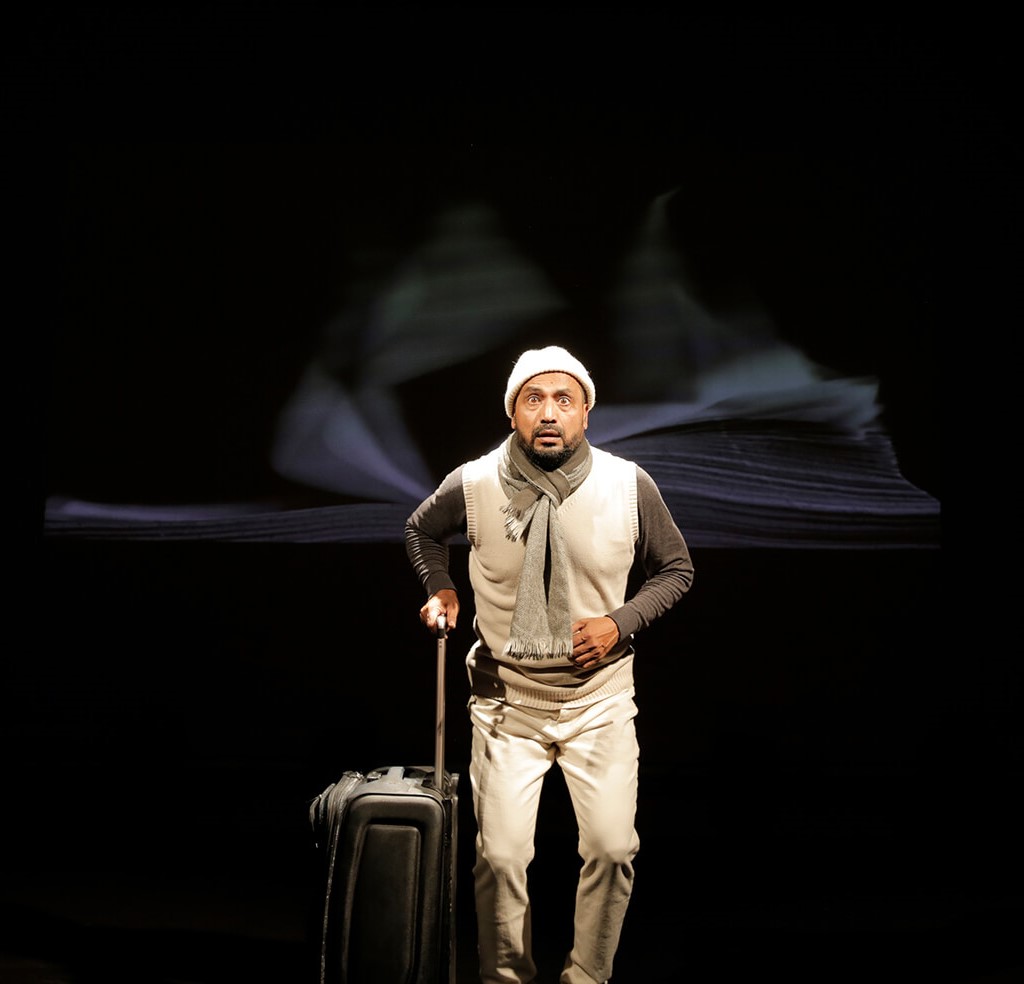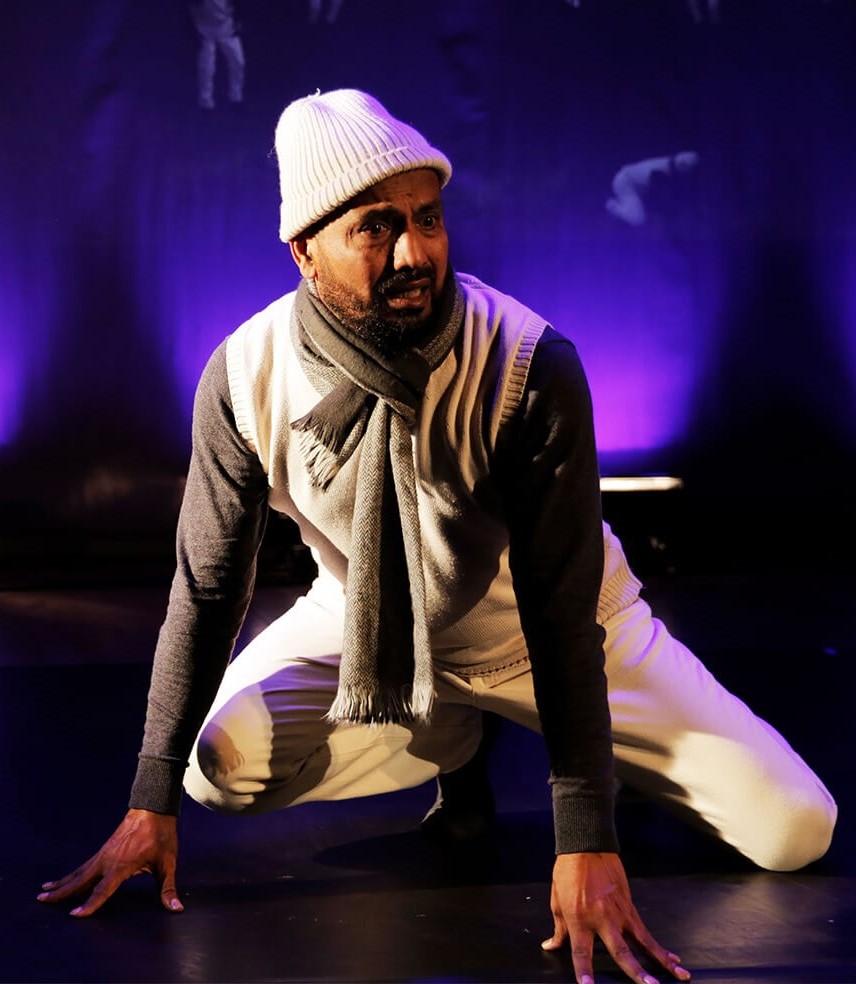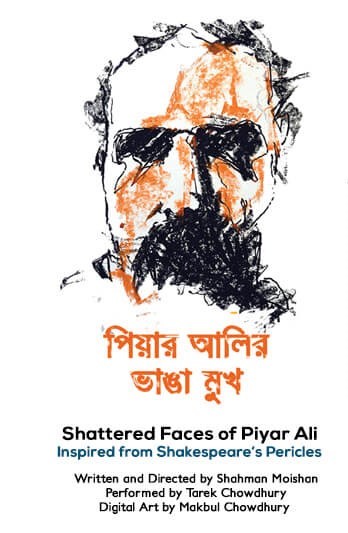
This play explores a ceaseless journey of a Bangladeshi-British middle-aged man named Piyar Ali, who seeks his selfhood in the context of the 1971 genocide in Bangladesh during its liberation war. The play aims to rediscover the history of pains and the existential angst that an individual faces in his very private sphere due to internal colonialism and genocide by examining the concept of the “empathetic journey” that Dr Michael Dobson, Director of the Shakespeare Institute and Distinguished Professor of Shakespeare Studies at the University of Birmingham, determines to realise Shakespeare’s play, Pericles. The play has been inspired by Pericles as an archaeological source of a new creation. This performance as an endless “empathetic journey” blends South Asian story-telling techniques with the post-dramatic theatre aesthetics where a blurred world emerges at the cross-over between the physical world and the digital world.
Piyar Alir Bhanga Mukh was presented first at Midlands Arts Centre before only the invited and limited number of audience to examine the responses of the spectator from the diverse background around the world for its further development. After the show, Professor Michael Dobson, supervisor of this project, gave an instant perception and impact of that rehearsal-show: “even without being able to savour the text I was immensely moved by the piece, which in its palpable working-through of trauma reminded me of the work of Tadeusz Kantor. [Shahman] found the perfect actor in Mr Choudhury -- eloquent, hunted, haunting, evoking the unseen and the lost as only live in-person testimony can -- and his interaction with the imagery of the video footage was compelling. Those repeated concrete graves, the apparently impersonal grounding of the whole piece; that marvellous sequence in which Piyar Ali was multiply seeking his parents’ graves, suggesting at once how many, many bereaved Piyar Alis there are in the world and how shattered into multiple lost pieces was this individual’s soul...I keep thinking about that hat, on the handle of the wheeled suitcase. I really will think of it every time I think of Pericles from now on.”


The performance employs digital images instead of physical setting elements as it envisions deconstructing Shakespeare through a minimalist language where two performers have been involved, and the other two persons contribute technically in creating this piece.
He is a scholar-artist-activist-practitioner and educator with a deep and singular understanding of the roots, histories, and power of performance. This 4-way commitment and excellence in artistry, scholarship, pedagogy, all directed with a passionate outward activist focus to making the world a better place reflected from the works he has done. He teaches theatre and performance at the University of Dhaka in Bangladesh. Currently, he is on leave to pursue his PhD at the University of Birmingham. He aims to create a galvanizing point of his profession and the passion that motivates him to write the play, to direct theatre, to facilitate workshops, to do research and creative dialogue among the diversified communities across the globe. His research and practice negotiates the synthesized form of European modern theatrical idiom and creative imagination which is based on the paradoxical location of postcolonial identity in Bangladesh. The experimental theatre that he both creates and engages with aims to create a new theatre language that reflects ‘post-traditional’ performance aesthetics.
